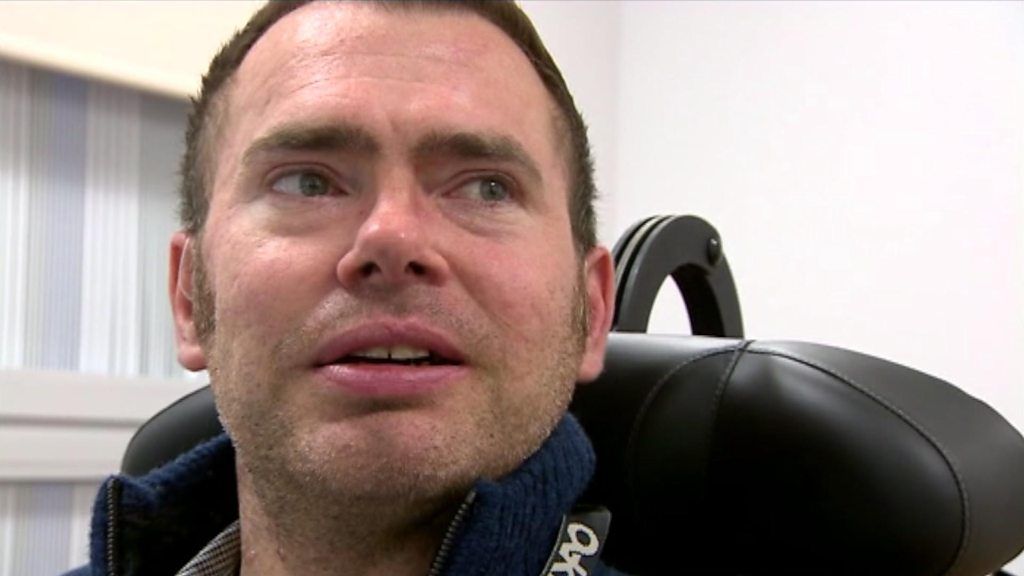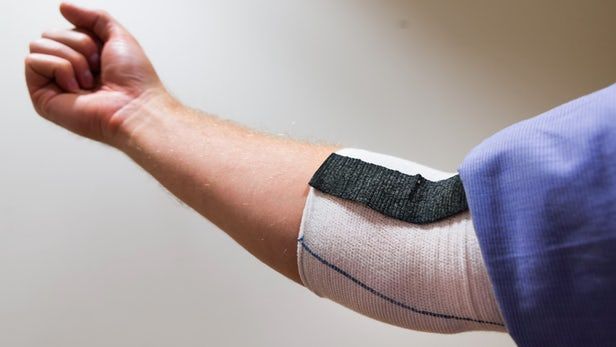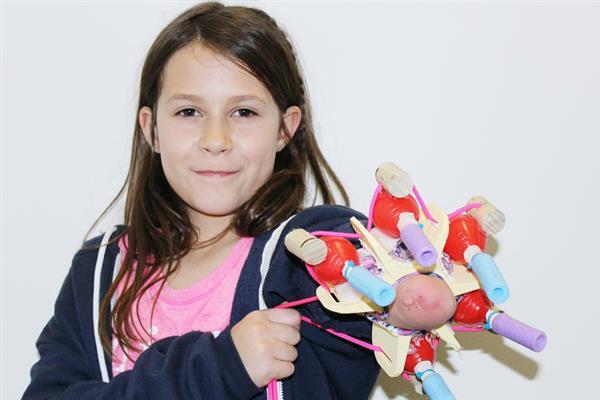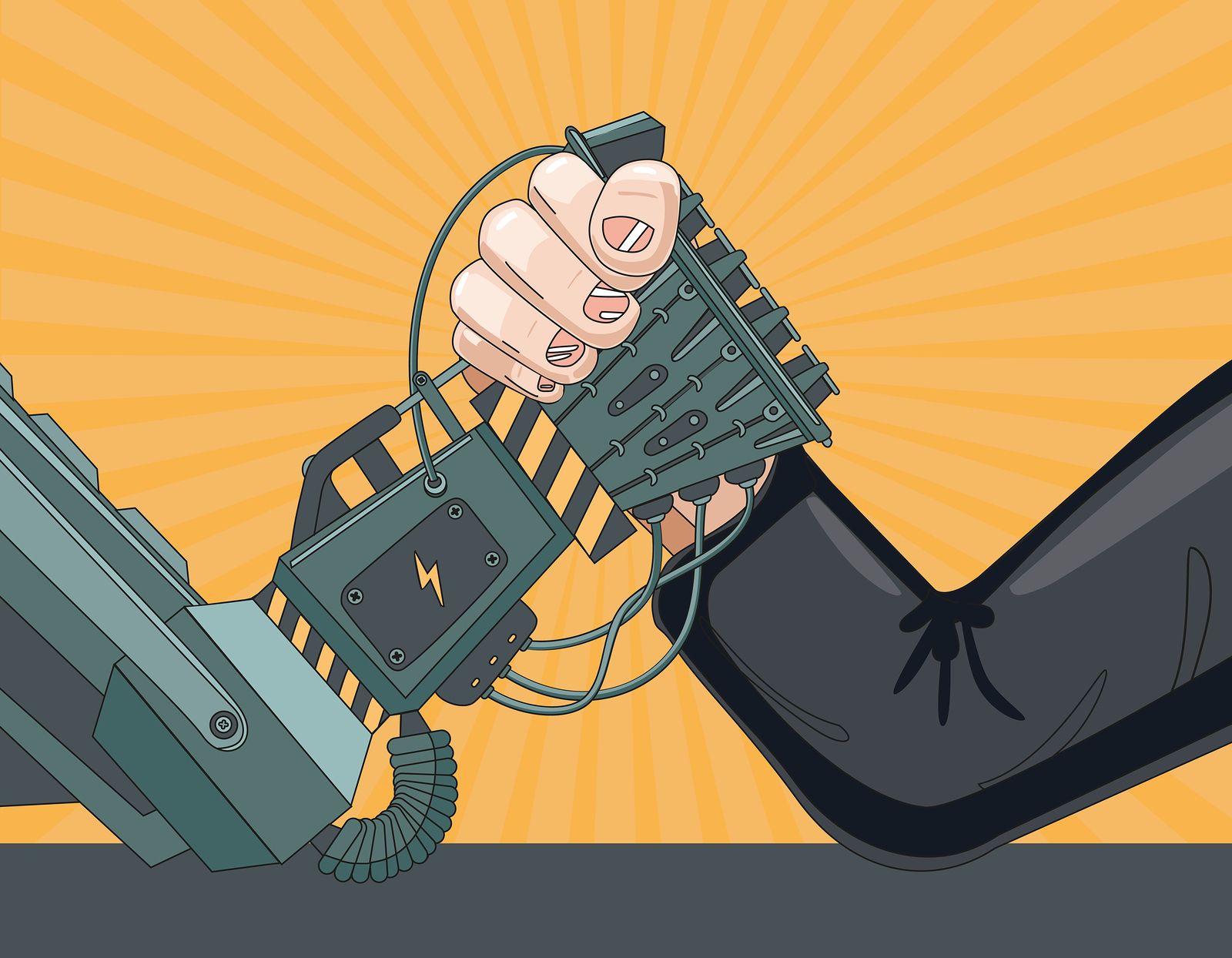Moscow is one of five cities in the world where people have begun installing subcutaneous implants for travel on public transport. The first Russian cyborgs, however, complain about the limits of using their new devices in everyday life.
Category: cyborgs – Page 115

Motor neurone sufferer Jason Liversidge trials Yorkshire voice
Love these stories as I remember (while visiting the Vanderbilt Medical Center in Nashville TN about SD) meeting a person who had a brand new voice box as their voice box was crushed through an accident. Just simply what we can do medically then; however, with AI, Synbio, and QuantumBio we will see amazing treatments, reversals of damage, bionic immune systems, superior brain functioning, etc. Definitely exciting future for all.
Father-of-two Jason Liversidge hears his new voice for the first time.
Biomimetic Artificial Skin Layer with Significant Temperature Sensitivity (VIDEO)

Researchers at the California Institute of Technology (Caltech) and the Swiss Federal Institute of Technology have developed a material that can sense changes in temperature with more sensitivity than human skin. The team discovered that flexible films made from pectin demonstrate an electrical response, caused by the release of calcium ions, following very small changes in temperature. Increased temperature causes the pectin molecules to “unzip”, allowing the release and movement of calcium ions.
Published in Science Robotics, this study looked to nature to find biological examples of similar temperature sensitivity. The researchers reported that specialized structures in pit viper snakes could sense similarly tiny changes in temperature, based on the release of calcium ions. Pit viper snakes use these structures to sense the bodily warmth of their prey when hunting at night. The team could replicate this using the artificial film by heating a stuffed toy to 37°C (mammalian body temperature) and placing it in front of the film. The film was able to sense the teddy bear from a meter away within 20 seconds.
Easy to fabricate and inexpensive, these films could be of great benefit for use in smart prostheses, providing an additional sense for disabled folks. In fact, given that the films can respond to temperature more sensitively than human tissues, it could even be akin to a “super sense”. Other potential biomedical applications include smart bandages that can measure and report on changes in temperature as a sign of wound infection.
Is Tesla working on computers that can be implanted into BRAINS?
In the hope of creating a ‘human-AI’ cyborgs, Elon Musk has revealed that Tesla may be working on computers that can be implanted into people’s brains.
The astonishing revelation came in response to a tweet, asking Musk if he was working on ‘neural lace’ – a way of installing computers into the human brain.
It is not known what the brain chip could be used for, but Musk has previously said that it will be the ‘thing that really matters for humanity to achieve symbiosis with machines.’

Textile muscles could find use in a literal “power suit”
There are many people who could use a bit of help moving their limbs, but they don’t necessarily need a full-on exoskeleton. Well, imagine if their clothes could provide that help. Such a thing may one day be possible, thanks to the recent creation of “textile muscles.”
In a study conducted at Sweden’s Linköping University and University of Borås, scientists coated mass-producible cellulose yarn with a flexible electroactive polymer known as polypyrrole.
When a low voltage is applied to the polymer, it increases in volume, causing the yarn fibers to increase in length accordingly – when the electrical current is switched off, the fibers retract back to their original length. By varying the manner in which those fibers are woven together, it’s possible to tune the force of the material toward different tasks.

11-year-old girl who made glitter-shooting prosthetic has more 3D printed projects lined up
Luv this. True Girl Power!
11-year-old Jordan Reeves, who last year made the world a bit jollier with her 3D printed, glitter-shooting prosthetic arm, has become a source of inspiration for many. The young and remarkably ambitious girl, who was born without most of her left arm (it stops just above the elbow), has been showing off her 3D printed glitter prosthetic all around the U.S. for the past several months, was presented with Disney’s Dream Big, Princess award, and was given a 3D printer courtesy of Autodesk and Dremel.
Not only is she receiving recognition, however, but Reeves has continued her steadfast work and is creating more 3D printed prosthetic accessories and assistive tools. Her latest project, for instance, is working on developing a device that combines a medical-grade prosthetic arm with 3D printed, changeable attachments. Though decidedly less sparkly than her first make, the hybrid prosthetic could allow for a variety of 3D printed attachments (like a hand or a pirate hook). Jordan is developing the 3D printed prosthesis with the help of her prosthetist and her Autodesk mentor Sam Hobish.
While many 3D printable prosthetic hand models do already exist, Reeves is one of many people who cannot use them, mainly because they mostly rely on wrist or elbow mobility, which she does not have. As Jordan’s mother Jen Reeves told Fast Company, “She came with the challenge because she and Sam were trying to figure out a way to use those standard 3D printed hands, and it got pretty aggravating. She realized that it was not possible with any of the current 3D-printed design concepts, since she doesn’t have an elbow.”

IARPA launching two programs aimed at making fingerprints more reliable biometrics
Intelligence Advanced Research Projects Activity (IARPA), the intelligence community’s research arm, will soon launch two programs designed to detect fake fingerprints and develop devices to collect fingerprint data without the aid of a human operator, according to a report by GCN.
The Odin program, which is scheduled to begin with four prime developers in early March, will develop detection technologies that can spot presentation attacks on biometric devices that attempt to spoof physical biometric samples, said Chris Boehnen, senior program manager at IARPA.
Boehnen said that prosthetic fingers, fake fingerprints made with wood glue and other tactics can dupe current fingerprint sensors.



Neuroprosthetics: Brain Interface Applied in Neurology
The brain is the fattiest organ in your body made up of 60% fat, the dry part that is. 75% of your brain is actually water which houses 100,000 miles of blood vessels that use up 20% of all your oxygen and blood. It’s an amazing piece of hardware. Of all the moonshot projects out there, the ones that relate to augmenting the brain are perhaps the most fascinating. Companies like Kernel have actually succeeded in writing long-term memories to a chip – well, at least 80% of them. When that number hits 100%, the sky is the limit to what we can do with the brain.
If you want a graphic image of what the future holds, imagine a robotic arm on top of your table (no wires) moving its fingers or trying to grab something powered only by someone’s thought. After all those Terminator movies, this could be a bit creepy. You may not get Terminator at your doorstep just yet, but someone with neuroprosthesis might just be ringing your doorbell a few years from now.
Neuroprosthetics or neuroprosthesis is a field of biomedical engineering and neuroscience concerned with the development of neural prostheses which are a series of devices that can substitute your brain’s motor, sensory or cognitive functionality that might have been damaged as a result of an injury or a disease.